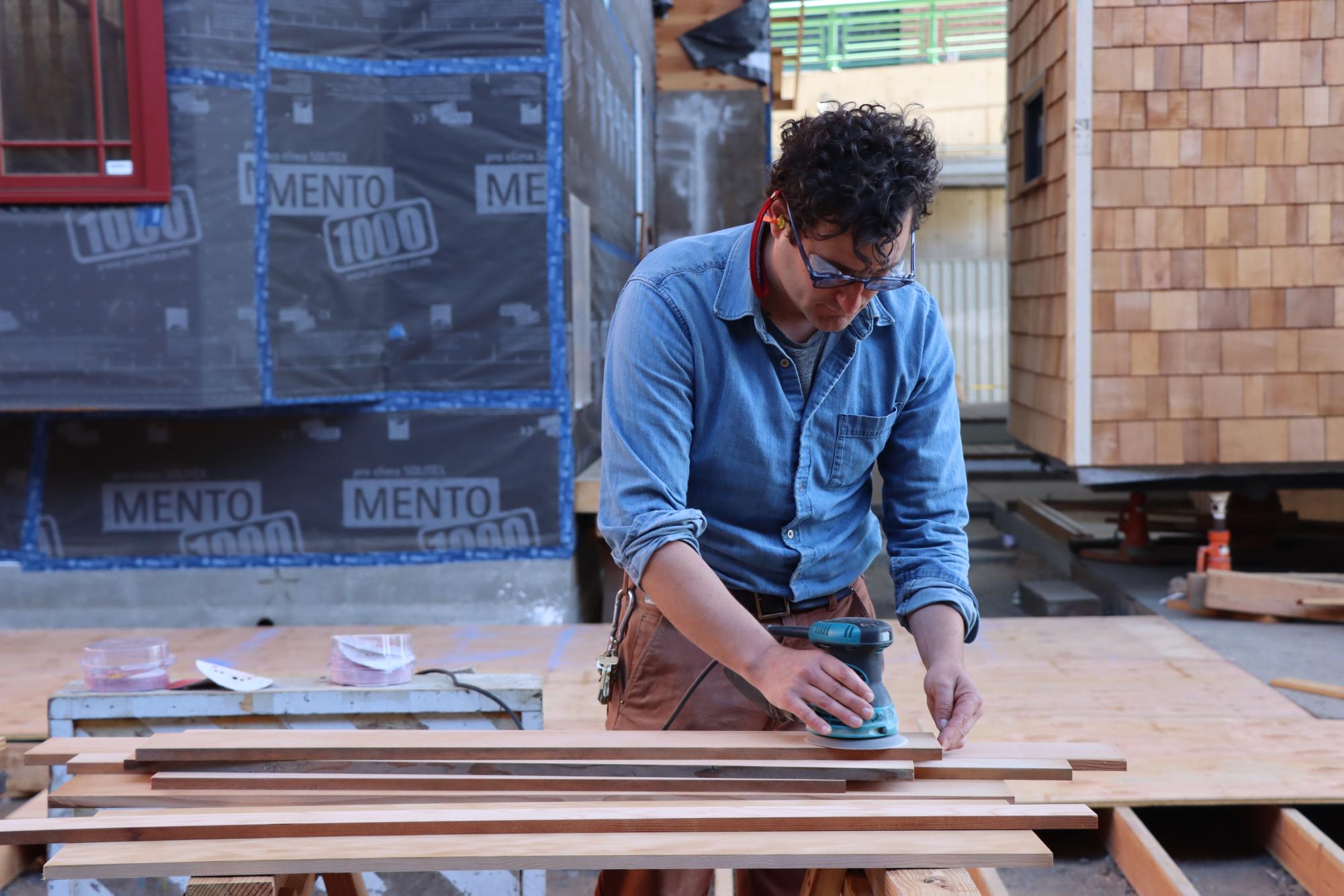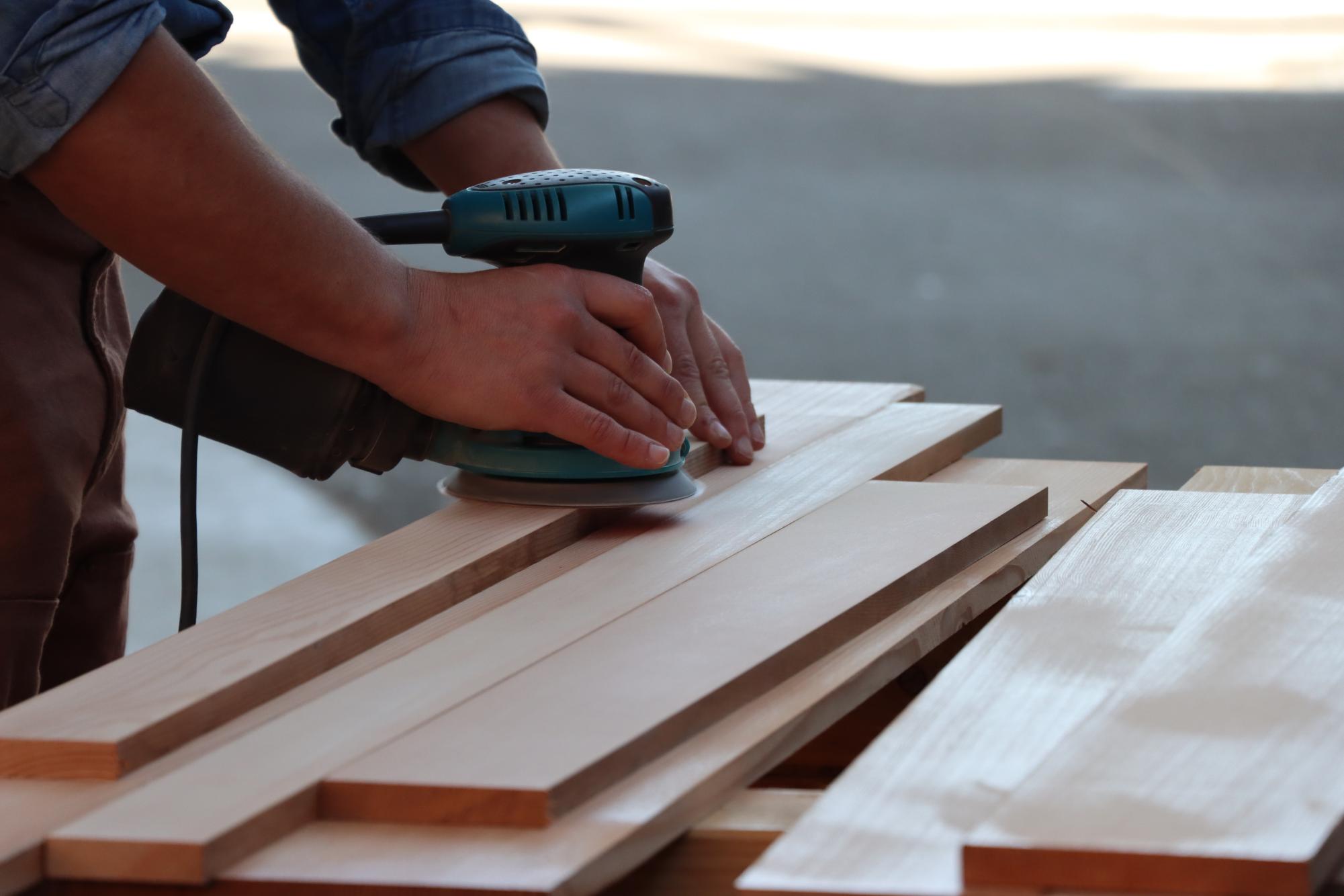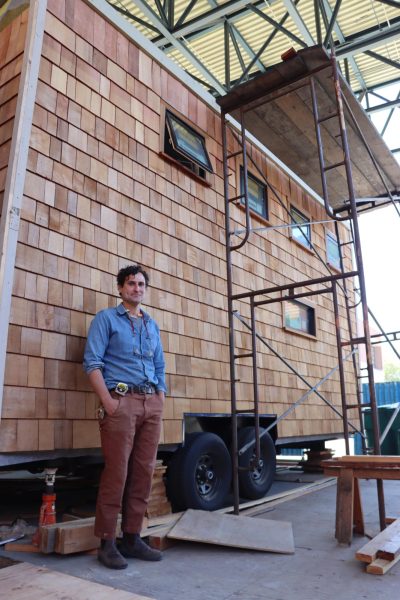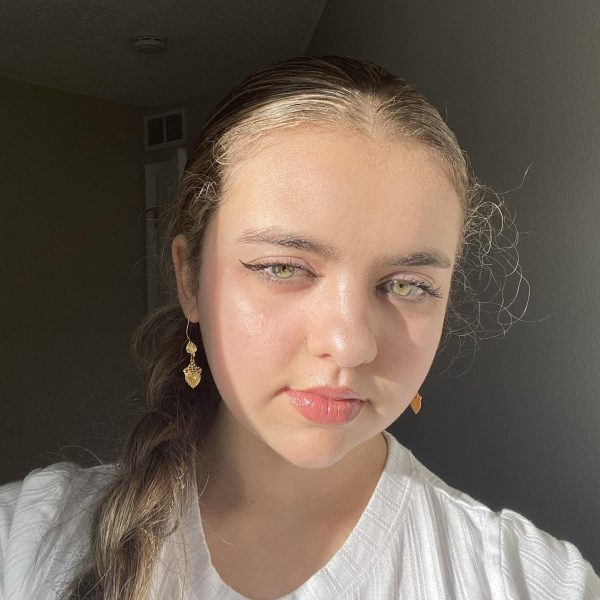
Newly tenured instructor Matthew Wolpe’s path brought him to Laney College, where he has whittled his creative passion into teaching students about building and carpentry. He can often be found underneath the college’s “carpentry canopy,” laser focused on his next project.
As a child, Wolpe always loved to make things. Born and raised on the East Coast, his family encouraged him to explore his creativity and make mistakes in a safe environment.
“I didn’t know how to build when I was a kid, but I did always like making things and being creative,” Wolpe explained. “[…] My mom still has the paintings that I gave her.”
He would often visit his relatives in New York City, some of which were designers and artists themselves, which exposed him to the world of design and aesthetics.
“I think some people in my family were influential in that regard,” he said. “We would go to gallery openings, or museum shows, or see weird films […] Being exposed to a lot of things was really helpful I think.”
Wolpe received his education at The Evergreen State College, a liberal arts college in Olympia, Washington. When asked whether his family was accepting of his pursuit of carpentry, he revealed that actually, he started out as an architect.
“I thought I was going to be an architect, so that gave me some legitimacy, I guess,” Wolpe mused. “But then when I started building stuff, I just decided, I really like that. I really just like building.”
Wolpe found his passion for carpentry while rebuilding houses in Mississippi, in the aftermath of Hurricane Katrina. Through a fellowship with Design Corps, an architecture firm that designs and builds projects, he got his first taste of building and was “hooked.” He also learned how resilient people can be in the face of adversity, and how positive they were in spite of it all. Others like Wolpe were also helping to rebuild, and were doing the best of their abilities to rebuild homes, under the sweltering sun.

After that, Wolpe decided he didn’t want to pursue a career that would chain him to a desk for long hours, typing away at a computer. In his mind, he was set on this pursuit.
He moved to the Bay Area not too long after, where he’s lived for the past 15 years. In 2016, he started teaching part-time at Laney College, until he became full-time four years ago. His predecessor and mentor, Cynthia Correia, recruited him to lead the Tiny House Project at Laney.
The tiny house projects are easy to spot on campus – they’re the front and center of the carpentry department. Wolpe explained that they are fun to build, students get to be creative with the design, and they partner with nonprofit organizations to benefit the greater community. Most recently, they worked with a nonprofit called the Shelterwood Collective, which was started by former Laney student Layel Camargo.

Wolpe wants to ensure that social and environmental responsibility is always incorporated both into his curriculum and his daily life. He says he is especially concerned about the cost of living, and has noticed how it has affected students’ ability to live here without a good support system from their families. He is happy that through the program they provide, that the students are more likely to find jobs, due to high demands for people skilled in trades.
“The essence of carpentry is building houses and everybody needs a house.” Wolpe said. “Housing […] in California is very contested and expensive, and there is not enough of it. And so I feel like inherently when you are building a house here, you are serving a need.”
This year, Wolpe is excited about a new project he’s undertaking in his digital fabrication class. Digital fabrication involves designing things on a computer, and then sending the design to a machine that turns the design into a real object. At the Laney Digital Fabrication Lab, also known as the FabLab, students can design furniture and send it to a CNC machine, which can cut wood very precisely in 3D space.
This semester, Wolpe’s students are making their own lamps. The goal is to make something both efficient and “artistically interesting.”
“This is a situation where each student is making something very different,” he said. “[…] It’s a fun challenge I think for the class.”
Wolpe loves the community that has been built at Laney, especially with the students. He enjoys the many hands-on departments on campus and hopes that he will leave the department better than it was before.


























